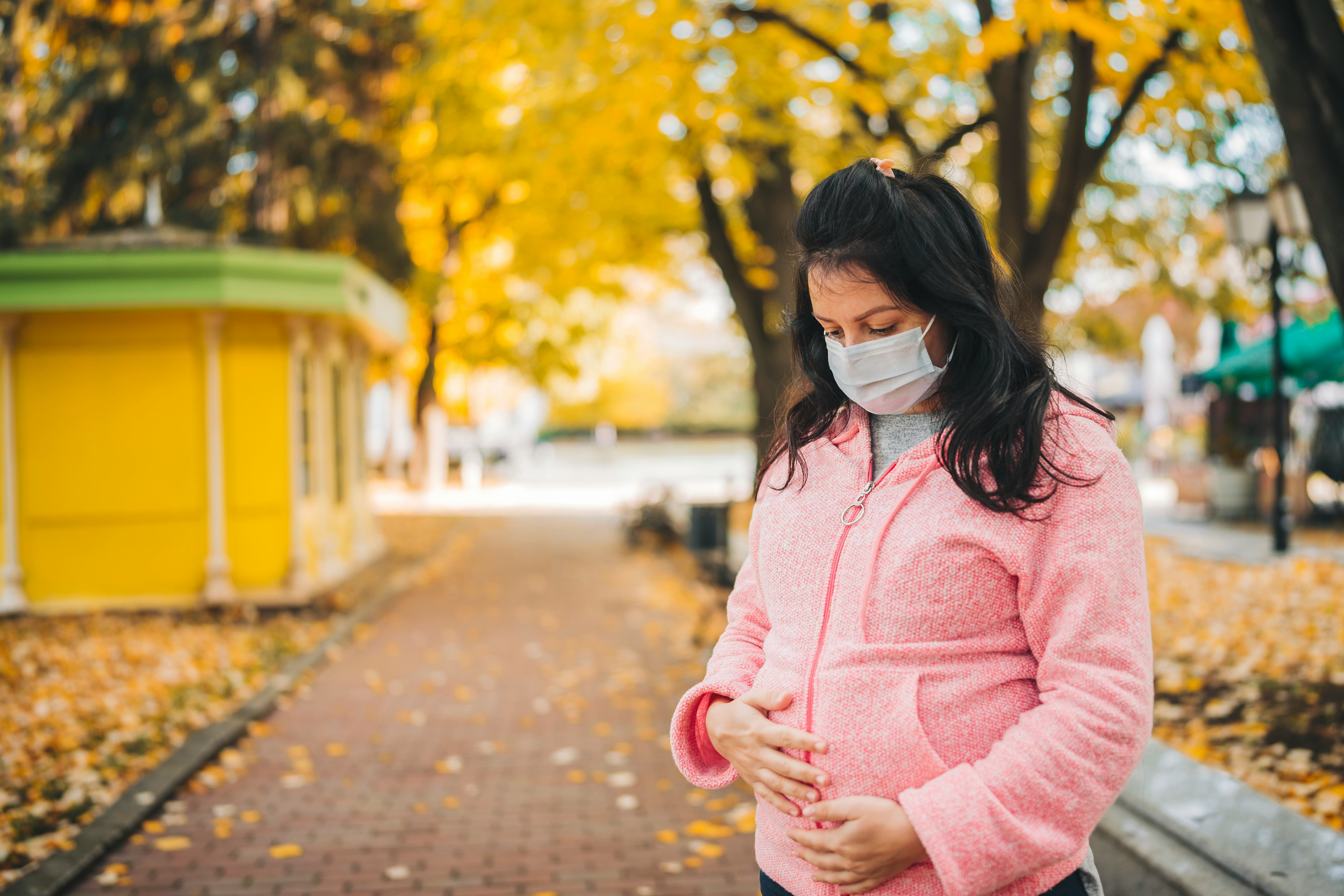
The coronavirus pandemic has officially lasted as long as most pregnancies, but with the first doses of the vaccine now administered, the end is officially in sight. But, what if you actually are pregnant? Is the COVID-19 vaccine safe for you and your baby?
The Pfizer vaccine, the first to be given a stamp of approval by the FDA, was approved on December 11, and front line health workers began receiving the first doses. Moderna and Johnson & Johnson vaccines quickly followed and as of now, 42.3% of the U.S. population has been fully vaccinated. Which means, at some point, a pregnant person has definitely received the vaccine. And so far, there have been no ill effects reported.
Pregnant Women Will Be Able to Get the Vaccine
To date, pregnant people have been excluded from clinical trials for either of the vaccines; this is common practice as those groups are usually tested after a medication is found to be safe for the general population. Unfortunately, this means that there is little data from which physicians can draw conclusions about how the vaccination will impact a pregnant person or a developing fetus. But physicians are hopeful that more research is forthcoming.
"The initial Pfizer and Moderna Phase 3 trials did not include pregnant women," Dr. Michael Zaretsky, a maternal fetal medicine specialist with Children’s Hospital Colorado, tells Romper. "We hope to have more information about safety and efficacy in pregnant women in 2021. The CDC will make recommendations to help pregnant women and their doctors decide whether pregnant women should get a COVID-19 vaccine."
In the meantime, pregnant people can receive the vaccine — and pregnant frontline workers were in line early. The CDC's Advisory Committee on Immunization Practices (ACIP) concluded that pregnant women in the Tier 1a group (identified as the first designated vaccine recipients) should still receive the vaccine. They stated, "pregnancy should be a precaution, but not a contraindication to receive a COVID-19 vaccine," while emphasizing the need for women to make an informed decision.
The American College of Obstetrics and Gynecology (ACOG) came to a similar conclusion, and, says Dr. Michael Cackovic, a maternal fetal medicine physician at The Ohio State University Wexner Medical Center, "the Society of Maternal Fetal Medicine recommends that healthcare workers, as prioritized for the vaccine, be offered the vaccine if pregnant."
There is nothing to indicate the vaccine isn't safe for pregnant people at this time. That said, pregnant people considering the vaccine should discuss the risks with their doctor. Your personal health and coronavirus risk-factors will all come into play.
Consider The Risks of COVID-19 To A Pregnancy
Anyone weighing the decision to be vaccinated should keep in mind that the Centers for Disease Control and Prevention (CDC) warn that "pregnant people are at an increased risk for severe illness from COVID-19 compared to non-pregnant people." This includes the risk of preterm birth. Additionally, the CDC recommends that those who are pregnant still receive the flu vaccination and any other vaccines recommended by their physician.
"Pregnancy has consistently been demonstrated to be a risk factor for severe disease with regard to COVID-19; severe disease being defined as needing ventilation support and/or hospitalization," says Dr. Cackovic. "Women with pregnancies complicated by certain medical conditions appear to have a particularly elevated risk of adverse maternal outcomes. Additionally, available data that COVID-19 can be transmitted to the fetus during pregnancy appears to be rare, but possible. There is insufficient data to determine an increased risk of fetal loss or congenital anomalies with COVID-19."
Other Benefits To The COVID Vaccine During Pregnancy
Not only are you protecting yourself when you receive the vaccine during pregnancy, but you’re also protecting your baby (and any other children you have that are too young to receive the vaccine). A study published in the American Journal of Obstetrics and Gynecology found that not only were antibodies present in the mothers who received the vaccine, but antibodies were also found in all umbilical cord blood and breast milk samples. This proves that the antibodies are transferred to your baby, protecting them as well as yourself.
So, if you are pregnant, it's imperative to remain vigilant by washing your hands, wearing a mask, and maintaining social distance in public. Although researchers have shown tremendous speed and efficacy in gathering information related to the impacts of COVID-19, Zaretsky says, "We have much to learn about COVID-19 during pregnancy and in infants." The CDC recommends that every pregnant person receive the vaccine, and also suggests joining the vaccine pregnancy registry to help compile data.
Experts:
Dr. Michael Zaretsky, a maternal fetal medicine specialist with Children’s Hospital Colorado
Dr. Michael Cackovic, maternal fetal medicine physician at The Ohio State University Wexner Medical Center
Study referenced:
Gray K, Bordt E, Atyeo C, Elovitz M, Alter G, Edlow A. (2021) Coronavirus disease 2019 vaccine response in pregnant and lactating women: a cohort study. The American Journal of Obstetrics and Gynecology, https://ift.tt/3szD9xa.

0 comments:
Post a Comment